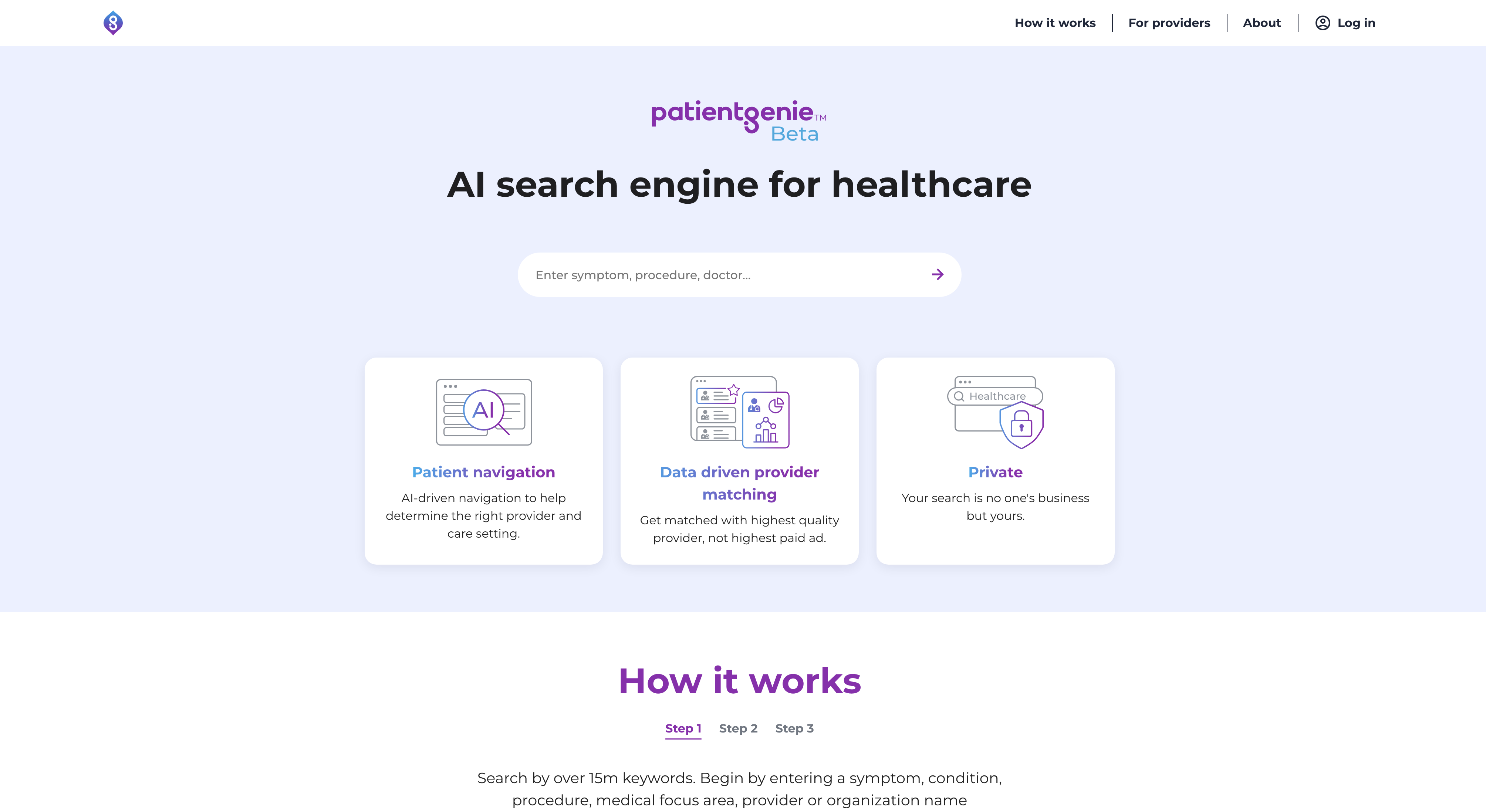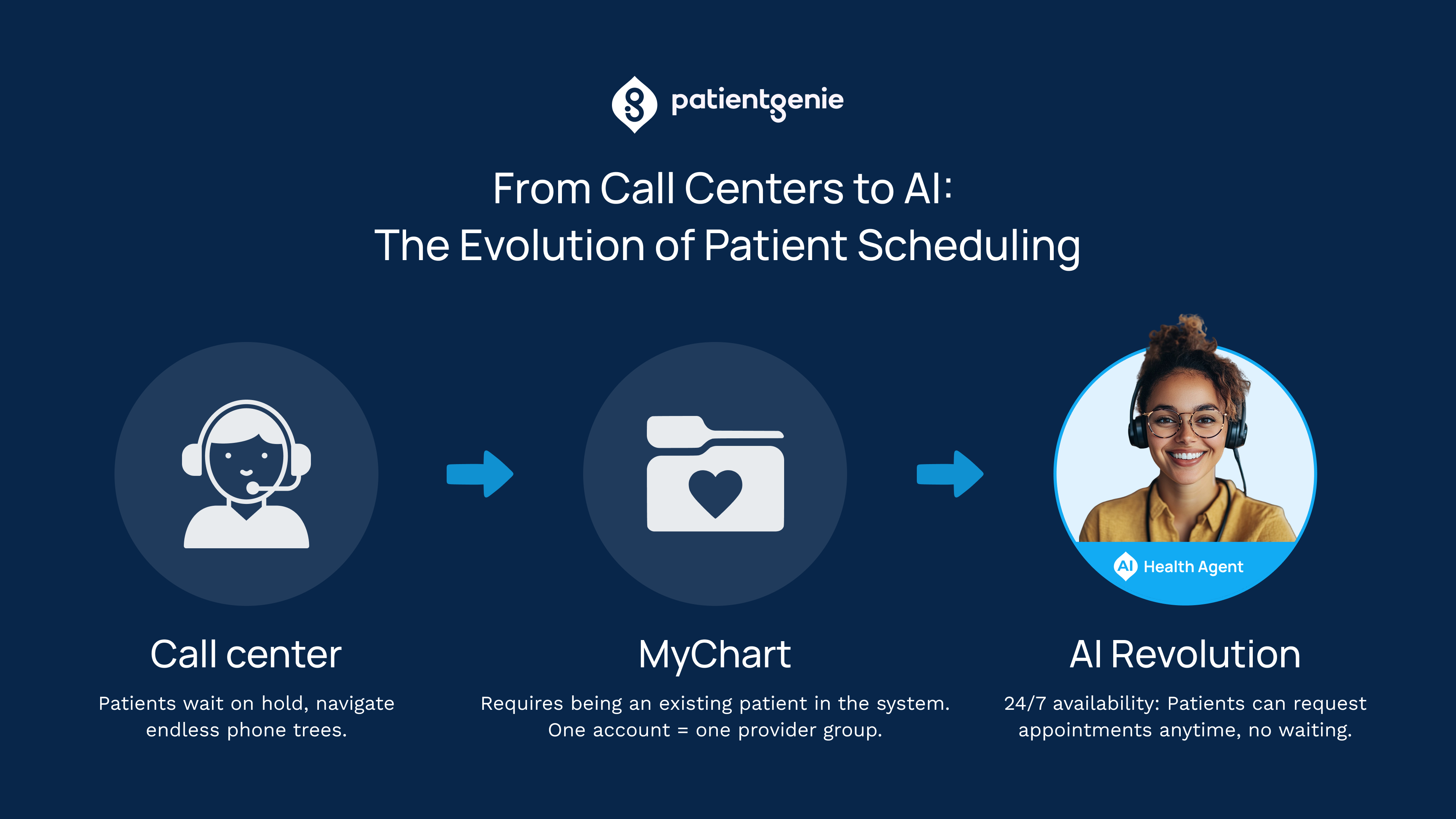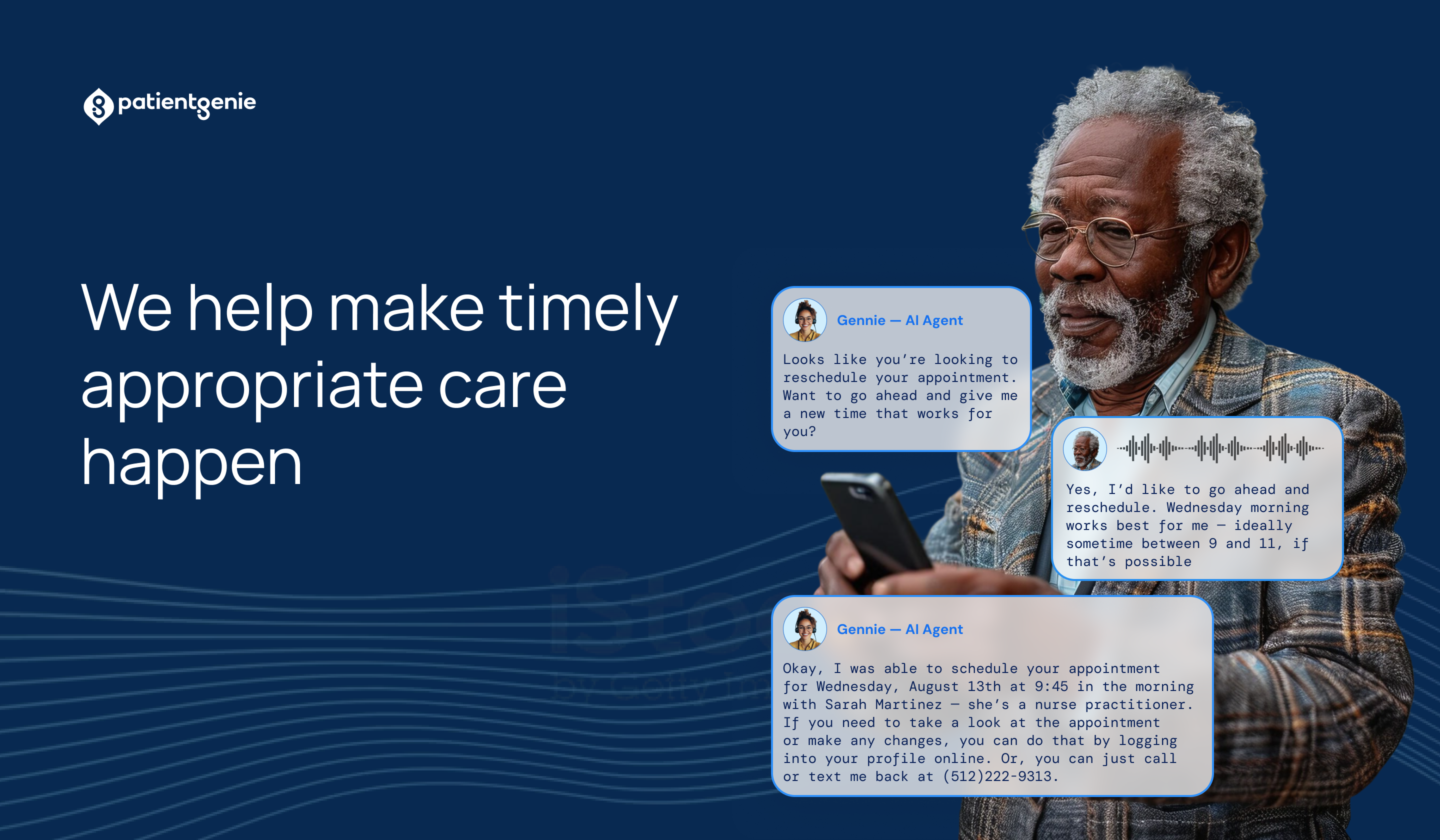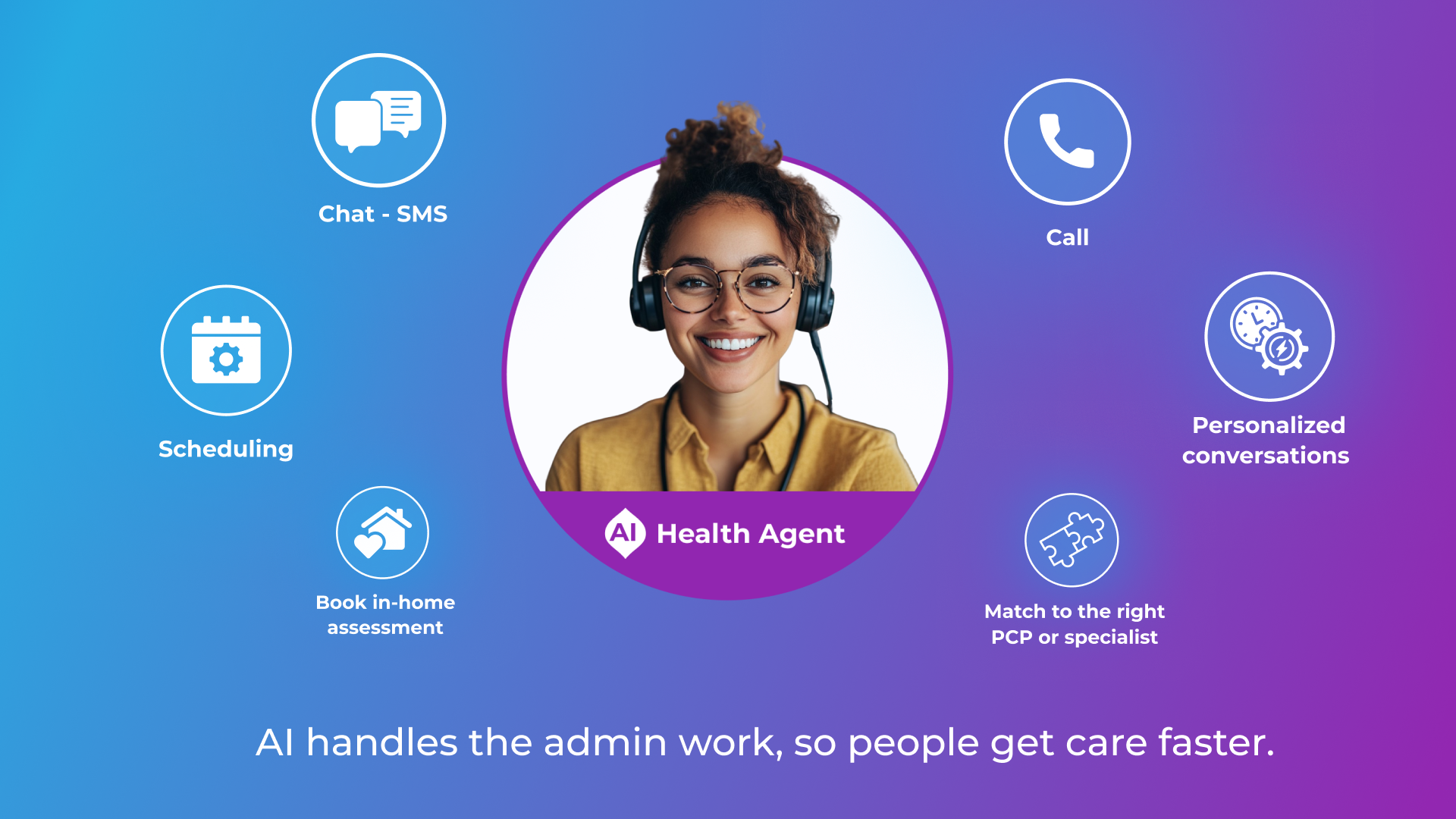4/18/2023
Introducing PatientGPT™: The Future of Patient Navigation by PatientGenie™ Using OpenAI.

PatientGenie, a consumer health technology company, is excited to announce the addition of PatientGPT, a groundbreaking AI navigation system, to its search engine for healthcare. Built on OpenAI's ChatGPT advanced technology, PatientGPT aims to transform patient navigation, offering a seamless and personalized experience for healthcare organizations and their patients.
Introducing PatientGPT™: The Future of Patient Navigation by PatientGenie™ Using OpenAIIntroducing PatientGPT™: The Future of Patient Navigation by PatientGenie™ Using OpenAI
The integration of PatientGPT into PatientGenie's AI search engine allows healthcare organizations to unlock the full potential of their digital channels by providing a more efficient, accurate, and user-friendly experience. This cutting-edge solution empowers patients to easily access relevant information and locate specialists, as well as book appointments and communicate with healthcare providers through an integrated ecosystem of technology partners.
"PatientGenie's mission has always been to empower healthcare organizations with innovative technologies that enhance the patient experience," said Brian Russon, CEO at PatientGenie. "With the addition of PatientGPT, we are taking patient navigation to a whole new level, enabling healthcare providers to deliver personalized, efficient, and accurate services that ultimately lead to better patient outcomes."
Key advantages of PatientGenie's PatientGPT AI navigation include:
1. Improved Patient Engagement: By providing an intuitive, conversational AI interface, PatientGPT enhances patient engagement and satisfaction, leading to better long-term relationships between patients and healthcare providers.
2. Streamlined Access: PatientGPT's AI-driven navigation, paired with PatientGenie's patented provider search capabilities, help patients quickly find relevant information, such as treatment options, specialist recommendations, reducing the time and effort required to navigate complex healthcare systems.
3. Enhanced Security and Compliance: PatientGenie's AI search engine adheres to strict data security and privacy standards, ensuring that sensitive patient information is safe and private.
4. Scalable and Customizable Solutions: PatientGenie can be easily integrated into existing healthcare IT systems and can be customized to meet the unique needs of individual organizations, making it a versatile solution for healthcare providers of all sizes.
Healthcare organizations interested in partnering or implementing PatientGenie's AI search engine with PatientGPT capabilities are encouraged to visit patientgenie.com for more information or to schedule a demo.
About PatientGenie:
PatientGenie is a consumer health technology company dedicated to empowering healthcare organizations with innovative solutions to enhance patient experiences and improve overall efficiency. With a suite of tools designed to optimize patient navigation, streamline appointment scheduling and access to care, PatientGenie is revolutionizing the way patients and providers interact in the healthcare space. For more information, please visit patientgenie.com.
Last news
From Call Centers to AI: The Evolution of Patient Scheduling
For decades, scheduling a healthcare appointment has meant waiting on hold, navigating phone trees, and hoping someone answers before you give up.
Now, a new era is here. AI-powered scheduling agents work around the clock to match patients with the right provider and book appointments — calling offices, verifying availability, and even making multiple attempts until the job is done.
9/24/2025PatientGenie 2030: What a World with Frictionless Access Might Look Like
What if getting care was as simple as saying, ‘I need help’? By 2030, it can be. At PatientGenie, we’re building the infrastructure for frictionless healthcare access—AI agents that call providers, engage members, schedule in-home assessments, match patients with PCPs, and coordinate follow-ups automatically. No portals. No hold music. No missed care. This isn’t the future—it’s happening now, and it’s changing how patients, providers, and health plans connect. Let’s make 2030 happen, now.
8/5/2025


